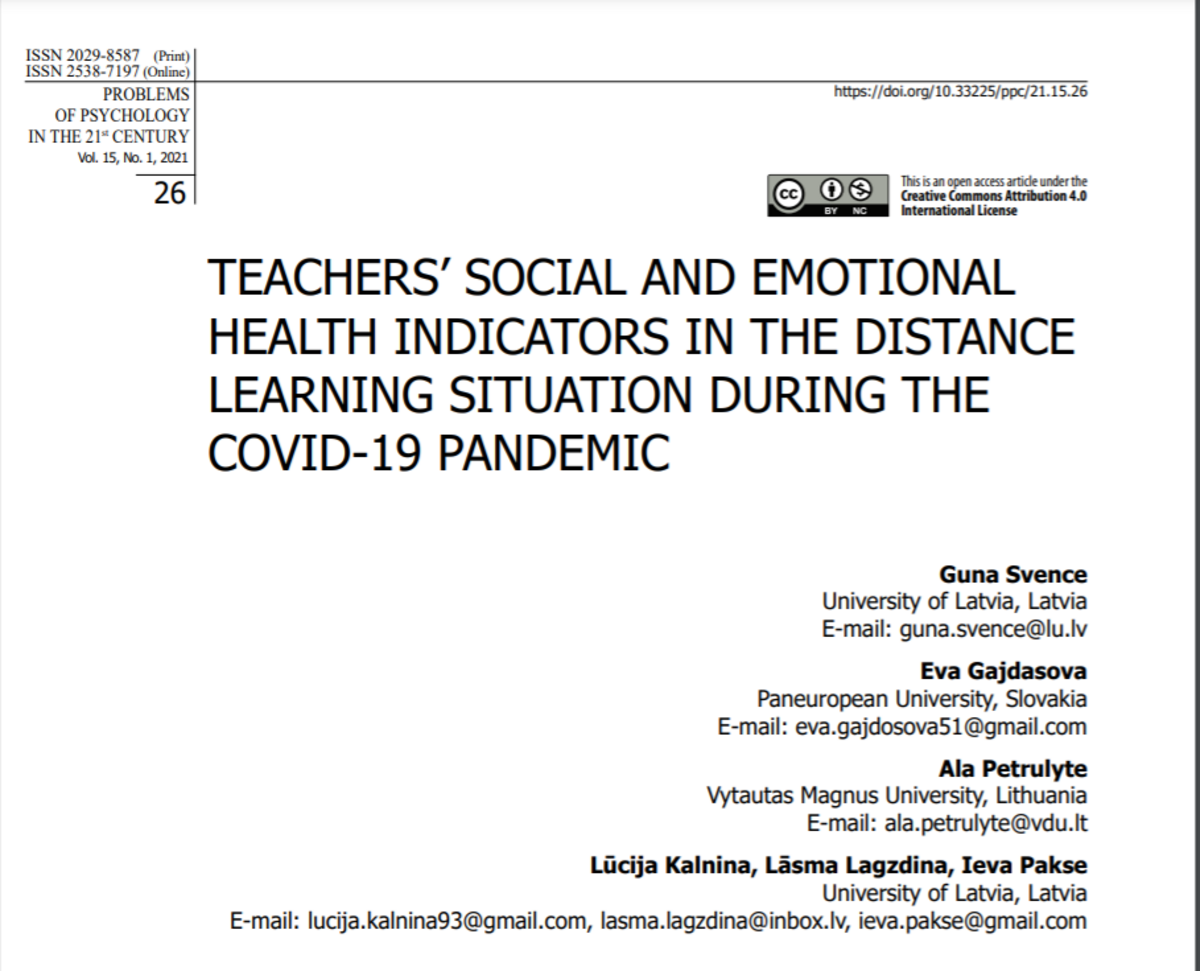
RESEARCH OF THE PROJECT IDEA IN TEACHER FOCUS GROUPS
In Latvia, Slovakia, Lithuania
2020–2021
In the context of distance learning caused by the COVID-19 pandemic, in 2006 an initial version of the project problem was examined in three countries through an analysis of teachers' mental health – socio-emotional health indicators. A number of research questions were asked, such as "How do teachers describe their feelings in the distance learning process?" The research process in Lithuania, Slovakia and Latvia focused on the adaptation of a new psychological assessment tool SEH-T, the study of resilience factors related to various socio-demographic indicators, such as age group, type of school, length of service. There were following selection criteria for the research groups or samples: working in a general education institution, working remotely at school during the COVID-19 pandemic for at least a year, agreeing to participate in the survey voluntarily.
Preliminary focus group studies in these countries show that a large proportion of teachers in each country suffer from burnout, exacerbated by three additional factors during distance learning: the need to learn new technologies, the current habit of social contact (no eye contact if cameras are not turned on, immediate feedback), lack of students, parental dissatisfaction and confusion about the need to learn new didactic techniques, etc. All countries have shown that the workload of teachers during distance learning has increased due to the need to invest more time and energy.
An additional study conducted in Latvia, which is described in more detail in this article, shows that teachers work more cognitively when working remotely, which has consequences for the level of emotional self-regulation, because teachers approach the new situation responsibly, think more creatively and work with the unpredictability of new situations. It creates a cognitive and emotional effort where empathy, mutual support from the family becomes impaired. Not only does the family suffer, but contacts with colleagues, who were one of the resources for face-to-face training, are also declining.

 CONFERENCE
CONFERENCE